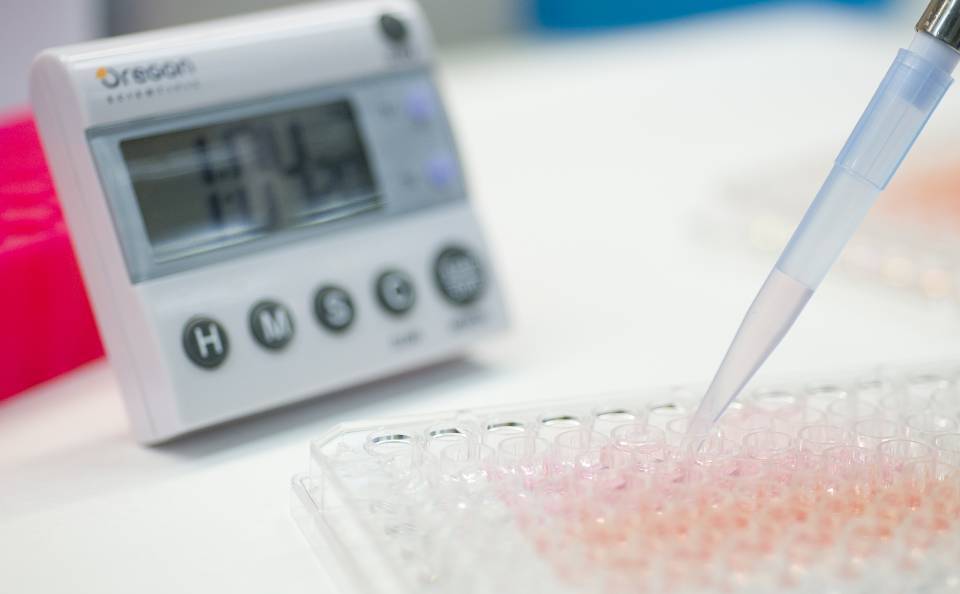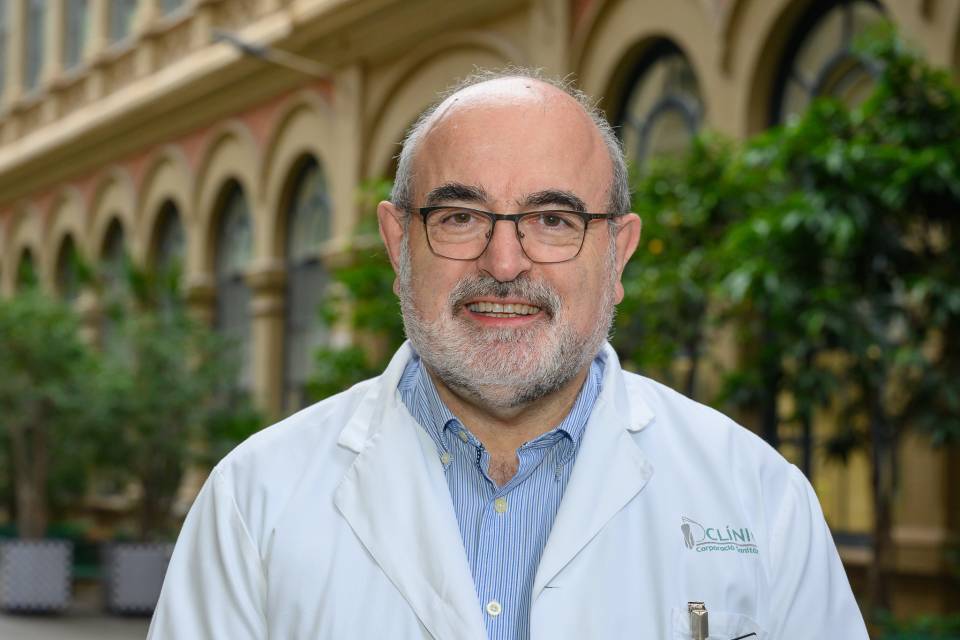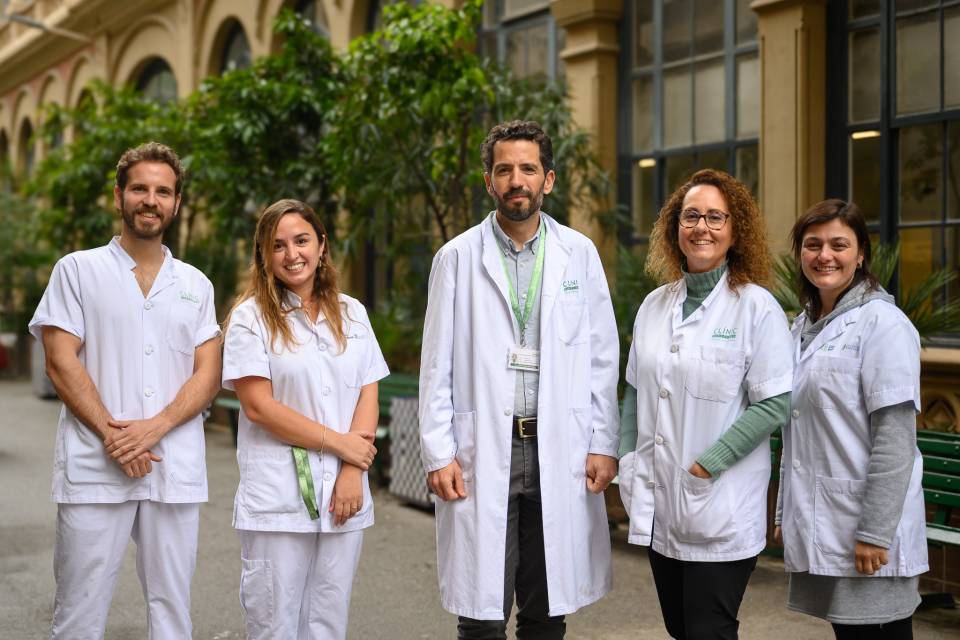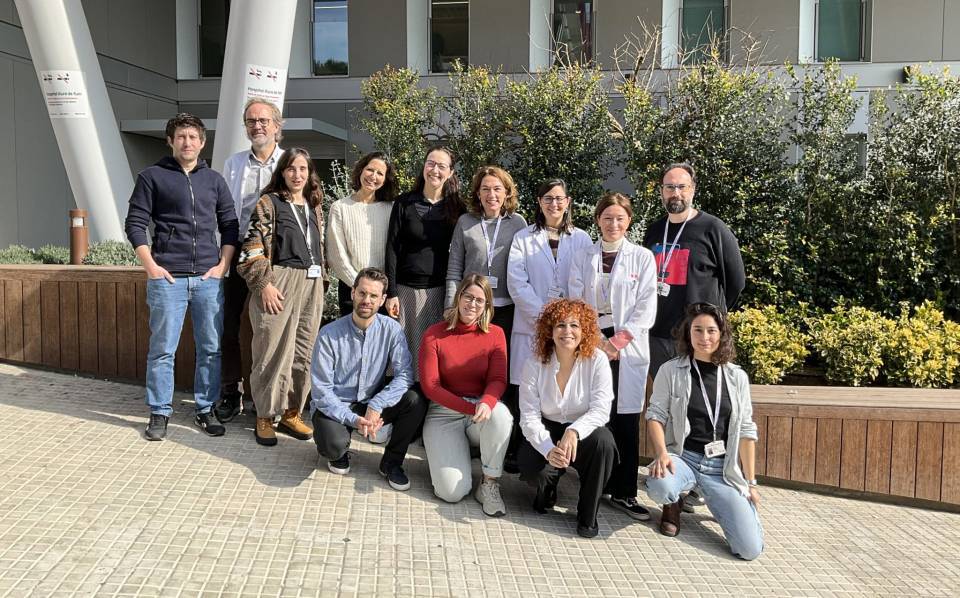Large-vessel vasculitis is a group of chronic inflammatory diseases that affect the main blood vessels, such as the aorta and its branches. This group of diseases includes giant cell arteritis, which mostly affects Caucasian women over the age of 50 years. The main symptoms are headache, pain, or fatigue of the jaw muscles, ocular ischemia, and general joint pain and stiffness, while more severe cases may develop blindness or aortic aneurysms.
Currently, available therapeutic options that make it possible to keep the disease under control are limited, and many patients present adverse effects and long-term toxicity. New treatments must therefore be found. Mariona Cid, head of the IDIBAPS Systemic vasculitis group, and her team have been working for years to discover the mechanisms involved in the development and perpetuation of the inflammation and vascular remodeling. “Our goal is to identify therapeutic targets and biomarkers that may be useful in clinical practice, explained Cid.
One of the potential candidate molecules is granulocyte-macrophage colony stimulating factor or GM-CSF. Expression of GM-CSF in lesions characteristics of giant cell arteritis was first described in 1994, but the role it plays in the disease has not been studied. Research on rheumatoid arthritis, however, has led to the development of an antibody that can block the GM-CSF receptor and inhibit the action of the molecule. “Phase-II clinical trials have already demonstrated the efficacy of the antibody mavrilimumab in rheumatoid arthritis. Thus, given our notable research trajectory, the company that owns the patent rights contacted us to assess the therapeutic potential of mavrilimumab in giant cell arteritis”, the researcher told us.
First, Cid and her group verified that both GM-CSF and its receptor were expressed in three-dimensional cultures of patients’ temporal arteries. “The results show that the increase in expression of the molecule and its receptor in different cell types present in the lesions activates genes and inflammatory cell processes associated with the development of the disease”, said Cid. “Administering the antibody mavrilimumab, however, reverses this effect and reduces the expression of proinflammatory molecules and markers of vascular damage”.
Based on these observations, the researchers designed a double-blind, placebo-controlled phase-II clinical trial that was conducted in 50 centers in 15 countries, in North America, Europe, and Australia. A total of 70 patients aged between 50 and 85 years took part in the trial. “After 26 weeks of treatment, the risk of exacerbation of symptoms was lower in the group treated with the antibody plus prednisone, a corticosteroid, than in the group that received a placebo plus prednisone. And the treatment also improved remission or attenuation of the disease”, explained Cid.

However, the researcher noted that, “we still have some way to go, as this was a phase-II trial, which needs to be confirmed by means of a phase-III trial. Nevertheless, the conclusions of our study would allow for use of the treatment on compassionate grounds in patients with severe disease and where no other alternative is available”.
The results of the research have been published in two articles in the journal Annals of the Rheumatic Diseases. Of note are the contributions of Marc Corbera-Bellalta and Roser Alba Rovira, as joint lead authors of the experimental article, and the work of Georgina Espígol-Frigolé and Roberto Ríos Garcés in this study. Cid also thanks Hospital Clínic, Barcelona for its participation in the clinical trial, and the work of all the members of the group who worked to identify patients and obtain biopsy samples. Both articles contain a special dedication to Montserrat Muñoz, Meritxell Molla, Immaculada Alonso and the whole oncology department of Hospital Clínic for their personal and professional support during the cancer treatment that Mariona Cid had to undergo throughout a large part of the research project.
Reference Article
Cid MC, Unizony SH, Blockmans D, Brouwer E, Dagna L, Dasgupta B, Hellmich B, Molloy E, Salvarani C, Trapnell BC, Warrington KJ, Wicks I, Samant M, Zhou T, Pupim L, Paolini JF; KPL-301-C001 Investigators. Efficacy and safety of mavrilimumab in giant cell arteritis: a phase 2, randomised, double-blind, placebo-controlled trial. Ann Rheum Dis. 2022 May;81(5):653-661. doi: 10.1136/annrheumdis-2021-221865.
Corbera-Bellalta M, Alba-Rovira R, Muralidharan S, Espígol-Frigolé G, Ríos-Garcés R, Marco-Hernández J, Denuc A, Kamberovic F, Pérez-Galán P, Joseph A, D'Andrea A, Bondensgaard K, Cid MC, Paolini JF. Blocking GM-CSF receptor α with mavrilimumab reduces infiltrating cells, pro-inflammatory markers and neoangiogenesis in ex vivo cultured arteries from patients with giant cell arteritis. Ann Rheum Dis. 2022 Apr;81(4):524-536. doi: 10.1136/annrheumdis-2021-220873.




